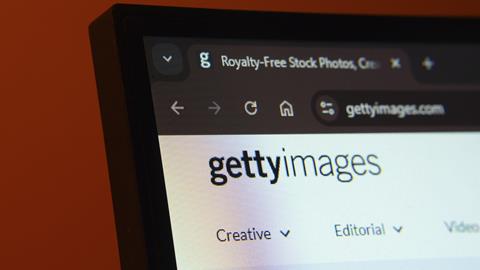A much-awaited High Court judgment on the controversial issue of the use of intellectual property for training artificial intelligence systems has been described as a 'damp squib' by specialist solicitors.
In a 201-page judgment in Getty Images v Stability AI, Mrs Justice Joanna Smith was ruling on a claim by the image library Getty that an AI startup, Stability, had infringed copyright, database and trade mark rights by 'scraping' millions of digital assets without consent or payment. The images were used to train an artificial neural network capable of synthesising images according to users' prompts.
The claim attracted widespread attention as governments and regulators grapple with the competing claims of AI developers and media owners. 'Where the balance should be struck between the interests of these opposing factions is of very real societal importance,' the judge noted in her introduction. However the judge also noted that Getty had scaled back its original claim, acknowledging that there was no evidence that the disputed AI training had take place in the UK. Meanwhile Stability had agreed to block user prompts which generated the images which gave rise to the primary copyright claim.
Ruling on the remaining claims, Smith concluded that Stability had infringed Getty's trade mark by generating virtual 'watermarks' on images. She dismissed a claim for secondary infringement. She declined to award any damages.
Ellen Keenan-O'Malley, senior associate, at IP specialist firm EIP said: 'From a copyright law perspective, this case ended up being a damp squib. Even before the trial concluded, Getty Images had already dropped their primary infringement claim. Additionally, the ownership of the copyright in nine of the 13 allegedly infringing works remained disputed. This certainly didn't set the stage for a favourable outcome for Getty Images. Hence, the dismissal of Getty Images' claim of secondary infringement wasn't surprising.'
Simon Barker, head of intellectual property at city firm Freeths, said: 'The High Court has drawn a line to say that training an AI model on copyright works, without storing or reproducing those works in the model itself, does not amount to secondary copyright infringement under UK law. AI developers can take some comfort from the case that the mere act of training on large datasets will not of itself expose them to liability for copyright infringement in the UK.
'However, the judgment also serves as a warning that if AI-generated outputs reproduce protected trade marks, for example where they appear as watermarks, in a way that could confuse people then they will risk infringing those trade marks. Each case will turn on its own facts and rights holders will need to evidence a likelihood of confusion or association with the relevant trade mark to succeed.
'The judgment strikes a balance between protecting the interests of creative industries and enabling technological innovation. It is likely to influence both future litigation and policy debates on AI and intellectual property, not just in the UK but internationally.'
Lindsay Lane KC, Jessie Bowhill and Joshua Marshall, instructed by Fieldfisher LLP, appeared for Getty; Hugo Cuddigan KC, Edward Cronan and Henry Edwards, instructed by Bird & Bird LLP for Stability.




























No comments yet